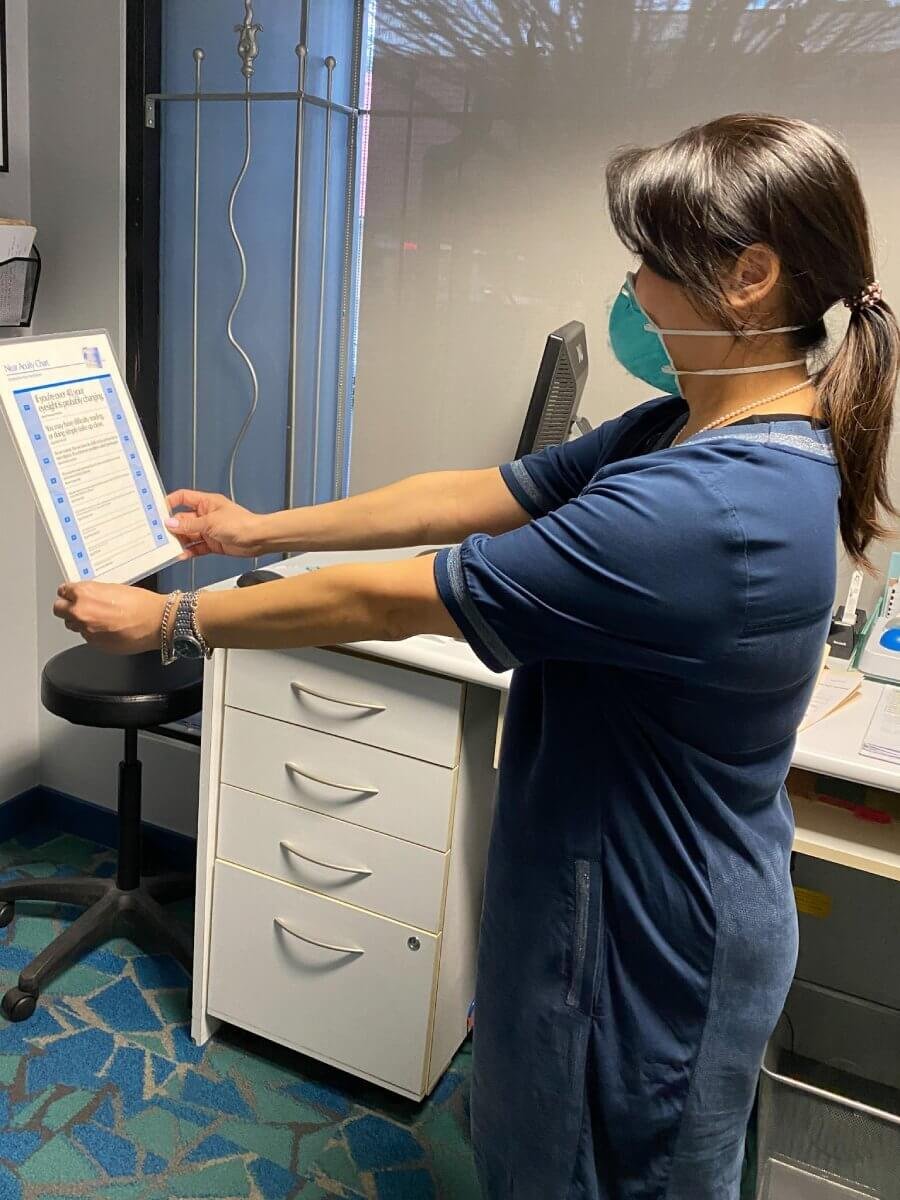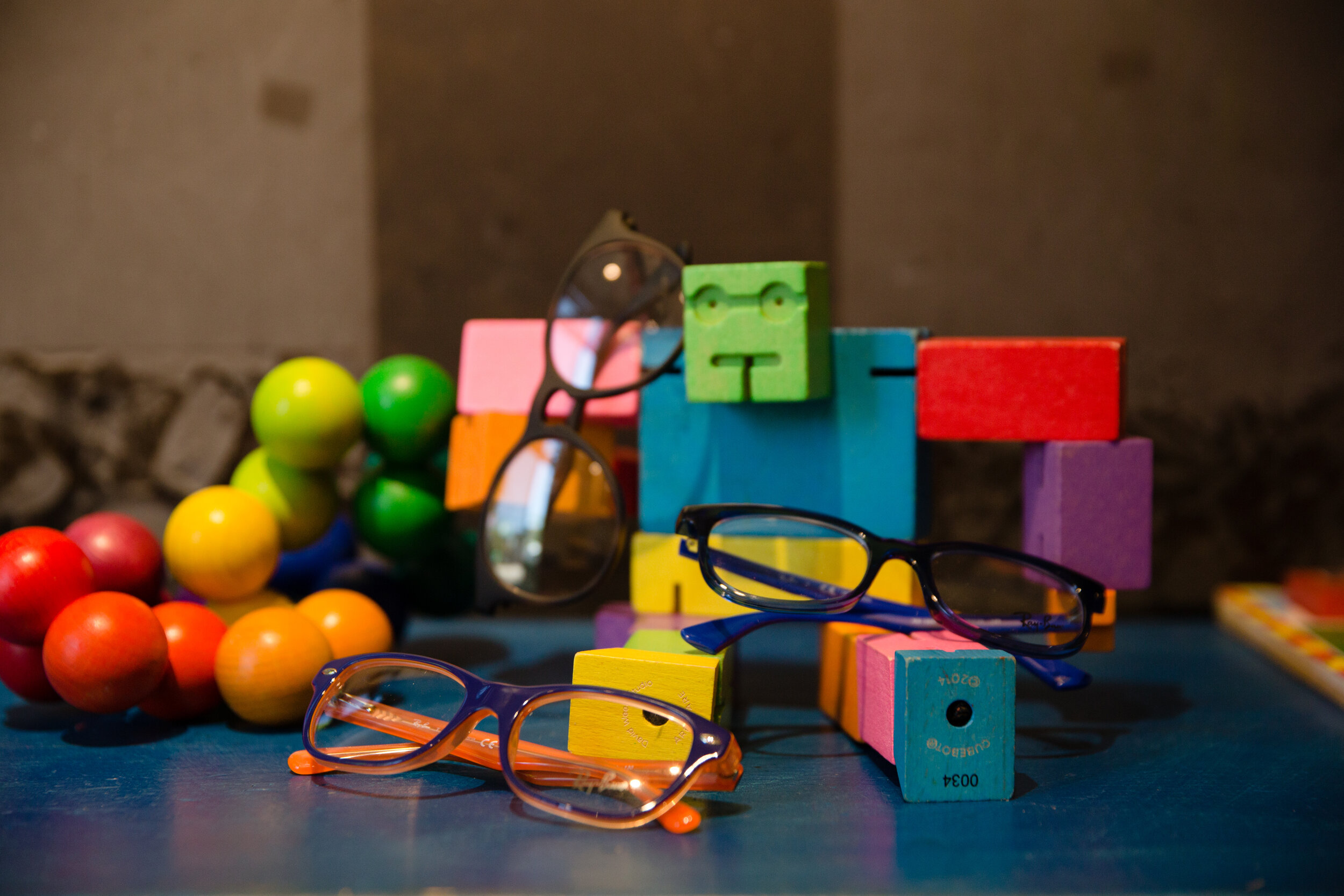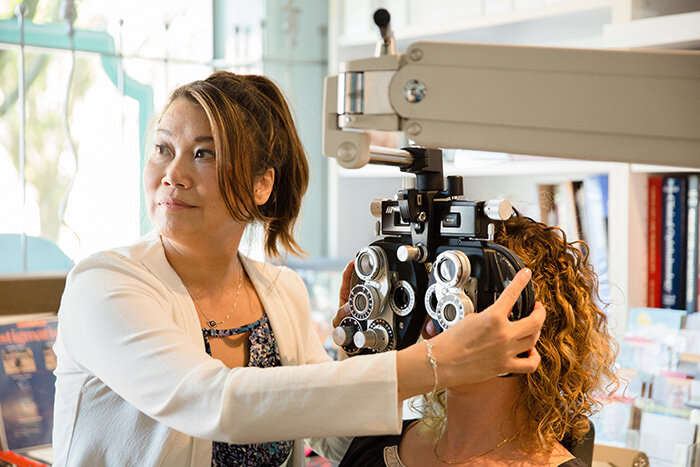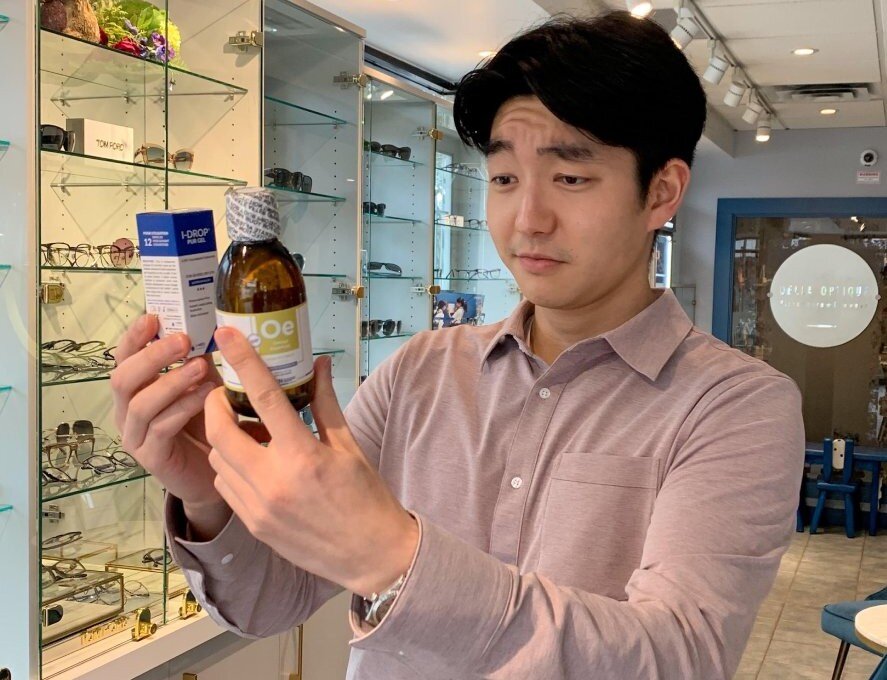Do I Need Reading Glasses? (Signs It's Time)
If you’ve ever asked yourself, “how do I know if I need reading glasses?” or ever wondered whether you would age to become someone who wears glasses, here are a few of the primary signs that you may need prescription glasses.
Signs you might need reading glasses
Having to hold magazines, your phone, or menus at an arm’s length to be able to read them properly. These are all signs of presbyopia (defined below).
Finding yourself enlarging font sizes on your electronic devices.
You experience headaches (vision problems can lead to headaches ranging from slight to severe.)
Eye Strain. This can be experienced as fatigue, or exhaustion after reading for some time. You might even just want to close your eyes briefly in order to rest them.
You’re over forty years old.
You find yourself wanting to move your computer screen or iPad back a bit, or forward or just shifting it in an effort to improve comfort while reading.
You’re squinting, and your name isn’t Clint Eastwood.
You have been experiencing difficulty focusing on words, numbers, or characters on everyday packaging and labels.
Do any of these signs sound familiar? Learn how Della Optique personalized eye exam services can prevent this.
Let’s look at a few of the most common problems with vision today that contribute to the above.
Presbyopia
Presbyopia is an age-related eventual loss of your eyes’ ability to focus on nearby stimuli. Due to the aging process, the lens inside the eye becomes less flexible, leading to blurry close vision. People develop presbyopia at various ages, but it typically manifests clinically in patients aged 40 to 65.
Currently, there is no way to reverse or prevent presbyopia. If you have never had an eye exam before, you will likely find yourself getting one in your forties due to developing presbyopia.
Myopia
This is when you have a minus “-“ prescription. Myopia (near, or nearsightedness is a common condition in which your near vision is clear, while distant objects yield blurred focus. . You are able to work on your computer with no issues but you may have quite a bit of difficulty reading street signs while driving.
Myopia occurs when your eye does not focus light correctly. It refracts light rays, focusing images in front of your retina rather than on your retina. Myopia tends to occur in school-age children as their eyes are still developing; however, it can also affect adult vision due to environmental factors or genetics.
Hyperopia
This is when you have a plus “+” prescription. Hyperopia (farsightedness), is a refractive error, which means that the shape and the anatomy of the eye refracts light behind the retina. In hyperopia, your distance vision is somewhat clear, but nearby objects appear more blurred.
People experience hyperopia differently. Some people may not notice any focussing challenges, especially when they are young. However, for people with significant hyperopia, vision impairment can start at a very young age. It is an eye focusing disorder, not an eye disease.
Are prescription reading glasses necessary?
The answer really depends on the outcome of routine eye health examinations with your eye doctor along with a prescription check. As we age, our focusing muscles weaken and the eye’s focusing lens becomes more rigid and less flexible. The initial states of these focusing challenges start as early as age forty in many cases.
For most people now, computer work, FaceTiming through their iPads, and relying upon their phones for the majority of the day has become the norm. A correct pair of prescription reading glasses, whether these be single vision reading glasses, office lenses (computer glasses), or progressive lenses can all be quite helpful in combating the three conditions described in this article.
At what age do you normally need reading glasses?
Many people start their first pair of reading glasses or progressive glasses at around age forty.
Can you have 20/20 vision and still need reading glasses?
Yes. You may have crystal clear 20/20 vision at a distance, yet still have challenges with close reading (see presbyopia above).
Can I just use over-the-counter reading glasses? Is it safe?
This is something that your eye doctor can properly address after a comprehensive eye examination. There are so many factors that affect a prescription that it is very difficult to answer with a plain yes or no.
Over-the-counter reading glasses are mass-produced and pre-made with the same power in both eyes; however, vision correction is not one size fits all. The majority of people have varying prescriptions, from right to left—one eye may be stronger or weaker than the other. In addition, quite a significant number of people also have astigmatism associated with their prescription, whichover-the-counter reading glasses do not address.
Can I wear contact lenses instead of reading glasses?
Yes. Multifocal contact lenses are designed to correct near and distance vision. Different zones on the lens are corrected for near, far, and intermediate vision for a smooth transition when viewing different objects. If you’re new to contact lenses or multifocal lenses, consult with your eye doctor to ensure it’s the right solution for you.
Get A Personalized Solution With Your Local Vancouver Eye Doctor
If you think you need glasses for reading, it’s important to get a comprehensive eye exam. Find an eye doctor you can work well with, and who takes time to understand YOU and your specific visual needs. Whether it be progressive lenses, office and computer lenses, or single vision reading lenses, the one you require will ultimately depend on your personal lifestyle and your individual visual needs.
The good news is that qualified eye care doctors are quite common and are routinely accepting new patients, like Della Optique. Indeed, eyewear can accentuate and even define a person’s style. People often have more than one pair of glasses for different purposes or for different activities in their lives. There are no hard, fast rules. Glasses are available to help you, the patient. They should always be prescribed, custom fit, and made with you in mind.
To get an eye exam and eyewear consultation, book an appointment here.







